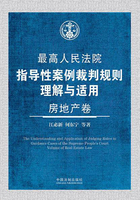"The Prince" traces the progress of an ambitious man, the "Discourses" the progress of an ambitious people. The same principles on which, in the former work, the elevation of an individual is explained, are applied, in the latter, to the longer duration and more complex interest of a society. To a modern statesman the form of the "Discourses" may appear to be puerile. In truth, Livy is not a historian on whom implicit reliance can be placed, even in cases where he must have possessed considerable means of information. And the first Decade, to which Machiavelli has confined himself, is scarcely entitled to more credit than our Chronicle of British Kings who reigned before the Roman invasion. But the commentator is indebted to Livy for little more than a few texts which he might as easily have extracted from the Vulgate or "The Decameron." The whole train of thought is original.
On the peculiar immorality which has rendered "The Prince" unpopular, and which is almost equally discernible in the "Discourses" we have already given our opinion at length. We have attempted to show that it belonged rather to the age than to the man, that it was a partial taint, and by no means implied general depravity. We cannot, however, deny that it is a great blemish, and that it considerably diminishes the pleasure which, in other respects, those works must afford to every intelligent mind.
It is, indeed, impossible to conceive a more healthful and vigorous constitution of the understanding than that which these works indicate. The qualities of the active and the contemplative statesman appear to have been blended in the mind of the writer into a rare and exquisite harmony. His skill in the details of business had not been acquired at the expense of his general powers.
It had not rendered his mind less comprehensive; but it had served to correct his speculations, and to impart to them that vivid and practical character which so widely distinguishes them from the vague theories of most political philosophers.
Every man who has seen the world knows that nothing is so useless as a general maxim. If it be very moral and very true, it may serve for a copy to a charity boy. If, like those of Rochefoucauld, it be sparkling and whimsical, it may make an excellent motto for an essay. But few indeed of the many wise apophthegms which have been uttered, from the time of the Seven Sages of Greece to that of "Poor Richard," have prevented a single foolish action.
We give the highest and the most peculiar praise to the precepts of Machiavelli when we say that they may frequently be of real use in regulating conduct, not so much because they are more just or more profound than those which might be culled from other authors, as because they can be more readily applied to the problems of real life.
There are errors in these works. But they are errors which a writer, situated like Machiavelli, could scarcely avoid. They arise, for the most part, from a single defect which appears to us to pervade his whole system. In his political scheme, the means had been more deeply considered than the ends. The great principle, that societies and laws exist only for the purpose of increasing the sum of private happiness, is not recognized with sufficient clearness.
The good of the body, distinct from the good of the members, and sometimes hardly compatible with the good of the members, seems to be the object which he proposes to himself. Of all political fallacies, this has perhaps had the widest and the most mischievous operation. The state of society in the little commonwealths of Greece, the close connection and mutual dependence of the citizens, and the severity of the laws of war, tended to encourage an opinion which, under such circumstances, could hardly be called erroneous.
The interests of every individual were inseparably bound up with those of the State. An invasion destroyed his corn-fields and vineyards, drove him from his home, and compelled him to encounter all the hardships of a military life. A treaty of peace restored him to security and comfort. A victory doubled the number of his slaves. A defeat perhaps made him a slave himself. When Pericles, in the Peloponnesian war, told the Athenians, that, if their country triumphed, their private losses would speedily be repaired, but that, if their arms failed of success, every individual amongst them would probably be ruined, he spoke no more than the truth. He spoke to men whom the tribute of vanquished cities supplied with food and clothing, with the luxury of the bath and the amusements of the theatre, on whom the greatness of their country conferred rank, and before whom the members of less prosperous communities trembled; to men who, in case of a change in the public fortunes, would, at least, be deprived of every comfort and every distinction which they enjoyed. To be butchered on the smoking ruins of their city, to be dragged in chains to a slave-market, to see one child torn from them to dig in the quarries of Sicily, and another to guard the harems of Persepolis, these were the frequent and probable consequences of national calamities. Hence, among the Greeks, patriotism became a governing principle, or rather an ungovernable passion. Their legislators and their philosophers took it for granted, that, in providing for the strength and greatness of the State, they sufficiently provided for the happiness of the people. The writers of the Roman Empire lived under despots, into whose dominion a hundred nations were melted down, and whose gardens would have covered the little commonwealths of Phlius and Plataea. Yet they continued to employ the same language, and to cant about the duty of sacrificing everything to a country to which they owed nothing.
Causes similar to those which had influenced the disposition of the Greeks operated powerfully on the less vigorous and daring character of the Italians.














